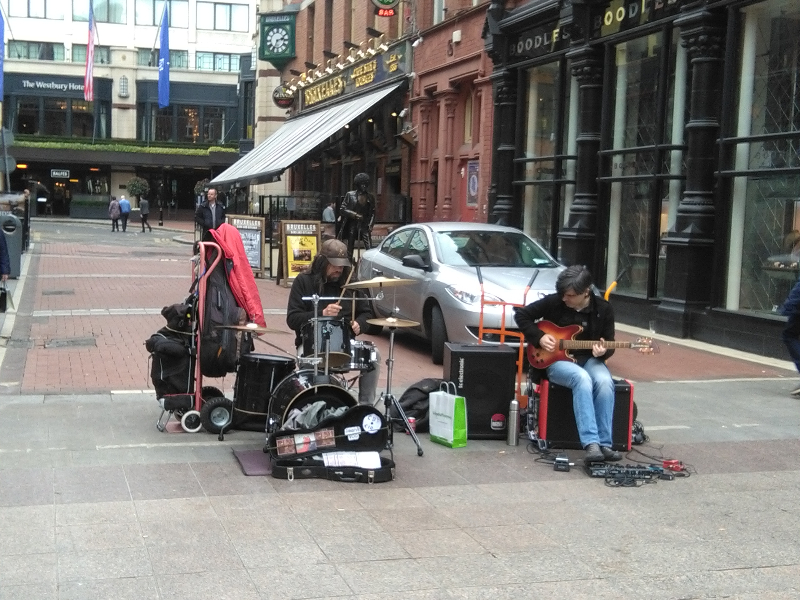DUBLIN buskers have expressed concerns over possible new restrictions on street performing in the city centre.
A review of current regulations could see a ban on the use of amplifiers and backing tracks due to ongoing concerns over noise levels.
Should these proposals be introduced, it would see a majority of Dublin’s busking community directly affected and, some claim, their ability to make a living compromised.
Since street performing permits were introduced in 2015, over 250 issued included the use of amplifiers, representing 55 per cent of registered buskers.
Andrew Glover, guitarist with popular pop/rock band Keywest and chairperson of the Dublin City Buskers group, spoke about the impact a ban on amplifiers would have on a variety of performers.
“People still think you can busk without amplification,” Glover explains. “That’s true to an extent, but if you’re a Spanish guitar player you need an amplifier. If you’re a violinist you need a backing track. If you’re a magician you need a microphone to be heard.”
While there have been a number of complaints from both shoppers and retail staff regarding the noise level generated by some buskers, performers such as Luca Fillipini, drummer with rock duo Joca, insist that these views do not represent the overall opinion of the public.
While the pair were able to gather a crowd of approximately 100 people on a recent Sunday on Grafton Street, these potential new measures would almost certainly put an end to their days of performing in the city.
“We try to do our bit to control the noise,” Luca says. “Somebody is not going to be happy but I know the vast majority of people are. Whoever is complaining, it’s a very small minority.”
Talk of new restrictions comes less than a year after the new code of practice for buskers was introduced, which included a maximum noise level of 80 decibels.
However, a report reviewing these bye-laws has found that the code is too difficult to enforce and that the maximum decibel level rule has had only a minor effect.
For now, a total ban on amplification is one of several options outlined in the review of the street performing bye-laws.
Glover and the Dublin City Buskers says they will continue to negotiate with Dublin City Council in order to find a solution.
It’s a small minority, but to be fair, they should be heard and there should be a compromise”, he adds.
“There’s a lot of negative publicity. They’re blaming us, we’re blaming them. It’s not like that. The council is trying to do the best thing for the city. The buskers are trying to deal with the council the best way they can.”
A spokesperson for Dublin City Council said the draft revised bye-laws went before the Arts Culture & Recreation SPC (Strategic Policy Committee) last week. However, as the committee recently lost three members after their election to the Dáil, it was decided to defer the discussion on street performing until a replacement has been co-opted.
The chairperson of the SPC, Cllr Rebecca Moynihan, has suggested that a forum be convened to discuss the bye-laws and submissions received during the public consultation.
The spokesperson said: “The purpose of the forum will be to bring together members of the SPC and representatives from the busking, business and residential sectors to discuss and potentially reach a mutually satisfactory agreement on how the contentious issues such as amplification can be dealt with in the revised bye-laws.
“A meeting of the forum will be arranged for shortly after Easter and the objective is that a report on an agreed outcome will be presented to the next SPC in May. In view of this, the earliest that the revised bye-laws will be voted on by the full council will be June.”
Daniel O’Connor
